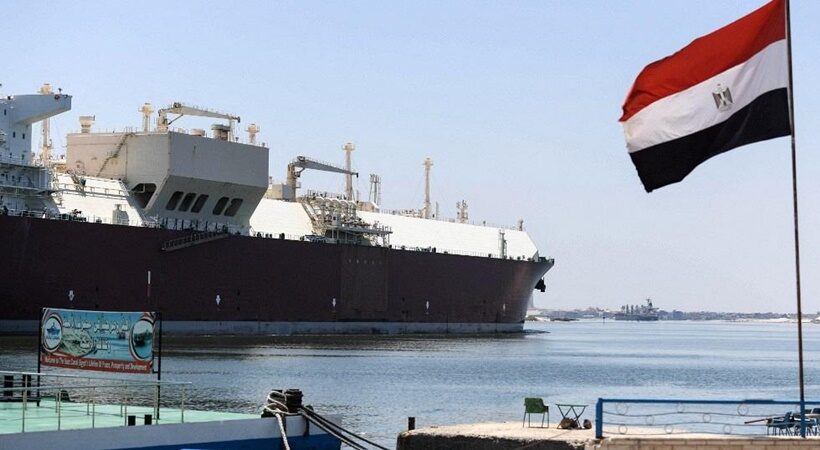Egypt increased transit fees for ships passing through the Suez Canal, one of the world’s most crucial waterways, with hikes of up to 10%.
The Suez Canal Authority stated that the increases were “in line with the significant growth in world trade” and cited the “development and improvement of the transit service” of the canal.
About 10% of world trade, including 7% of oil, passes through the Suez Canal, linking the Mediterranean and the Red Sea. For Egypt, the canal first opened in 1869, is a source of national pride and foreign exchange.
Around 12 per cent of global trade passes through the Suez Canal, carrying over $1 trillion worth of goods every year.
According to a statement, transit fees for ships carrying liquefied petroleum gas, chemicals, and other liquid bulk products have increased by 10%.
Vessels carrying vehicles, natural gas, and general cargo, as well as multipurpose vessels, will see a 7% increase, while a 5% increase will be imposed on oil tankers and dry bulk vessels.
These increases could be revised or cancelled later, depending on developments in global shipping.
The canal authorities have been working to widen and deepen the southern part of the waterway, where a huge ship ran around and closed the canal in March 2021.
The six-day blockage disrupted global shipments. Some ships were forced to take the long route around the Cape of Good Hope at the southern tip of Africa, incurring extra fuel and other costs. Hundreds of other ships waited on-site for the blockade to end.
Authorities said 20,649 ships passed through the canal last year, a 10% increase from the 18,830 ships in 2020. The canal’s annual revenue reached $6.3 billion in 2021, the highest figure in its history.
According to Admiral Osama Rabie, head of the Suez Canal Authority, last January (2021), 1,713 ships passed through the waterway, bringing in $545 million in revenue.
In February 2021, 1,532 ships passed through the canal, earning $474 million. The shipping industry is still under pressure from the pandemic, and the war in Ukraine may add to global economic concerns.
Authorities have been working on widening and deepening the canal after a huge container ship ran aground in the waterway in March 2021, disrupting global trade.
The ship was impounded for three months whilst Egypt and the owners agreed to a compensation deal. Egypt estimated that it took a $14-15 million hit because of the blockage.
In February, the Suez Canal Authority Chairman Osama Rabie announced that the two-way section of the canal would be extended from 71 kilometres to 82 kilometres, which would increase the capacity by six lanes.
The expansion of the Suez Canal is one of the Egyptian government’s vanity projects, along with building new capital and expanding bridges.
These large-scale infrastructure projects have been a bid to attract support and extend the military’s hold over the economy. In many cases, they have not helped the economy grow, despite lofty promises.
In 2014 the government announced that it was extending the Suez Canal at the cost of $8 billion. The head of the Suez Canal Agency, Muhab Mamish, claimed that revenues would reach $100 billion a year following the renovations.
However, revenue fell from $5.5 billion in 2014 before the canal was extended to $5.1 billion in 2015, which was nowhere near the projected amount.
The issuance of local bonds financed the project, yet the revenues did not return enough to repay the loan instalments.
In 2016 President Abdel Fattah Sisi said on TV that the goal of extending the canal was to lift morale in the country, not to make money.



















